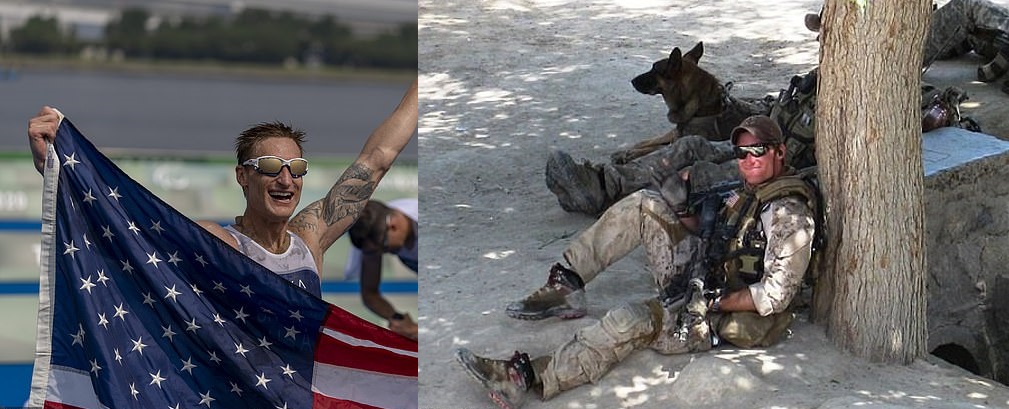Brad Snyder, a gold medal-winning US Paralympian who was blinded while serving with the Navy in Afghanistan, is applauding the withdrawal from the country.
‘It plagues me, it keeps me awake at night and I think about it a lot, especially being a person whose life was fundamentally changed by going to Afghanistan,’ Snyder said following his gold medal Paratriathlon victory in Tokyo on Saturday.
Snyder, who served in both Iraq and Afghanistan, said there is a ‘prevailing sadness’ over the Taliban’s return to power, but acknowledged that the US could not stay in the country ‘forever.’
‘Having been on the ground in Afghanistan, you can very clearly see the negativity associated with Taliban rule — the way women are treated, the way that the villages react to the notion of the Taliban,’ Snyder said. ‘That said, we can’t be there forever, and unless we’re going to fully commit in a way that we haven’t done in the last 20 years, the mistakes of the last 20 years don’t justify future investment in my view.
‘And so I applaud the decisions that have been made to change course and to change our strategy in Afghanistan.
Snyder became the first American man to win an individual Olympic or Paralympic triathlon, finishing the course alongside sighted guide Greg Billington in 1:01:16.
The 37-year-old Nevada native previously won six gold medals as a swimmer at the 2012 London Games and the 2016 Rio Games.
He was permanently blinded in Afghanistan in 2011 when he stepped on an improvised explosive device (IED).
Snyder said that he considers himself lucky to be alive.
‘Thankfully, I was alone when I got hurt, so it only affected me and, thankfully, it detonated a short distance in front of me … which largely saved my life and saved my limbs,’ he said.
The way Snyder sees it, he wasn’t fighting for the Afghan people, but rather for ‘human rights’ and ‘the notion of liberty, the notion of freedom.’
‘And that sacrifice, that fight is still alive, that fight is something we’ll be fighting until long after I’m gone,’ he said.
Snyder is currently studying for a PhD in Public Policy at Princeton, and hopes to return to the US Naval Academy to help prepare cadets for the ‘fights of tomorrow.’
